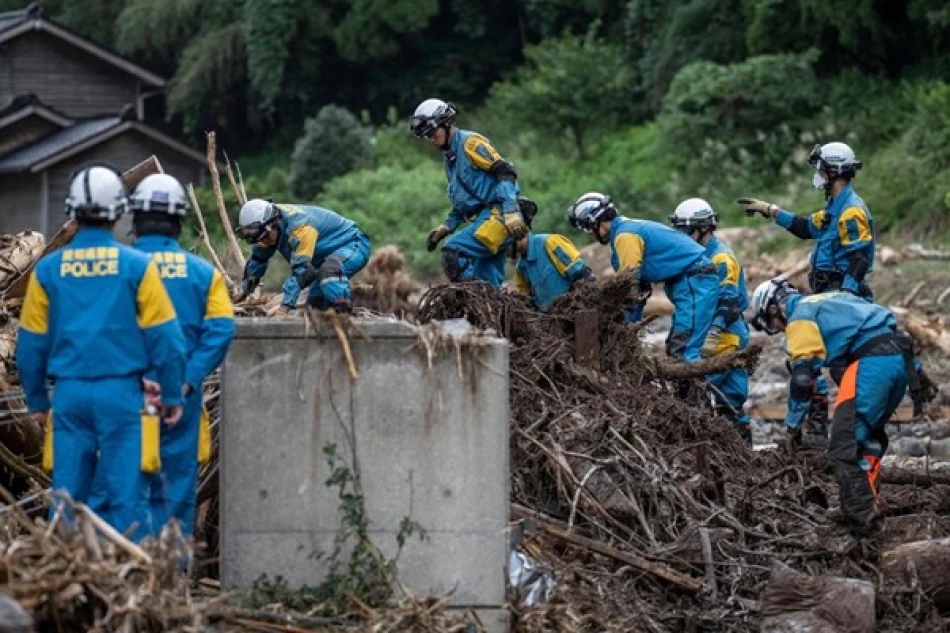
Heavy Rains Pummel Japan: Warnings Issued for Landslides and Flooding
Japan's Winter Storm Paralyzes Key Transport Routes as Climate Patterns Intensify
Heavy rainfall continues to batter Japan's Hokuriku region along the Sea of Japan coast, forcing the suspension of high-speed rail services and prompting urgent warnings about landslides and flooding. The disruption of the Hokuriku Shinkansen line between major cities highlights Japan's growing vulnerability to extreme weather events that are becoming more frequent and severe.
Transportation Network Under Siege
The Hokuriku Shinkansen, one of Japan's critical high-speed rail arteries, has suspended operations between Nagano and Kanazawa stations as torrential rains pound the region. This disruption affects thousands of daily commuters and tourists traveling between Tokyo and the Japan Sea coast, underlining how climate events can cripple even the world's most reliable transportation systems.
The rainfall began Wednesday in parts of Ishikawa Prefecture and shows no signs of abating, with meteorological authorities warning that persistent rain clouds will continue to dump water across the region through Friday morning.
Escalating Weather Risks Across Multiple Regions
Rainfall Projections Paint Concerning Picture
Japan's meteorological agency forecasts rainfall totals reaching 150mm within a 24-hour period ending Friday at 6 AM across three distinct regions: the Tohoku region north of Hokuriku, and northern Kyushu in southwestern Japan. This widespread pattern suggests a large-scale weather system affecting nearly the entire Japanese archipelago.
The simultaneous impact across geographically separated regions—from Japan's northeastern coast to its southwestern islands—indicates the scale and intensity of this weather event exceeds typical seasonal patterns.
Infrastructure Vulnerability in a Changing Climate
Japan's experience reflects a broader global trend where countries with advanced infrastructure face increasing challenges from extreme weather. The suspension of Shinkansen services, renowned for their punctuality and reliability, demonstrates how even the most sophisticated transportation networks remain vulnerable to climate disruption.
This event follows a pattern of intensifying weather events across East Asia, where rapid temperature changes and shifting precipitation patterns have become more common. Similar disruptions have affected high-speed rail networks in China and South Korea in recent years, suggesting regional climate systems are becoming more volatile.
Economic and Social Implications
The transport disruptions carry significant economic weight, as the Hokuriku Shinkansen serves as a vital link for business travel and tourism between Tokyo and Japan's western regions. The timing during Japan's winter season, when weather-related transport delays are already common, compounds the challenges for both residents and the broader economy.
For a country that has built much of its modern identity around precision and reliability—epitomized by its rail system—these climate-induced disruptions represent a fundamental challenge to national infrastructure planning and economic stability.
Most Viewed News

 Layla Al Mansoori
Layla Al Mansoori






